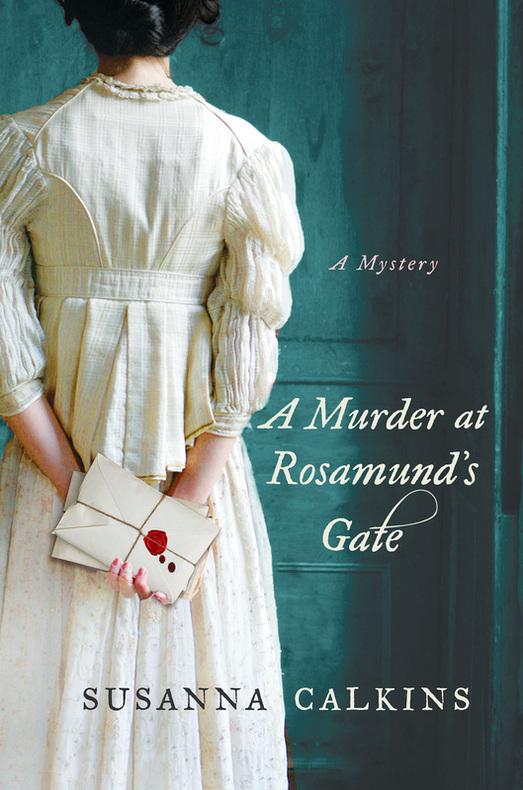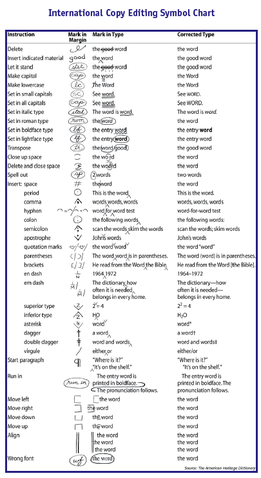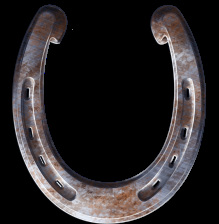 I can't tell you how excited I am to see the cover of my first novel!!! A Murder at Rosamund's Gate. I think the artists at Minotaur captured the essence of my story beautifully. The opening (and closing) images of my novel are of Lucy standing at a door. There are some other clues about the story tucked away here, but you'll have to read the book to discover them for yourselves!!!
40 Comments
 Even bats in the belfry sound better than silence I often feel I can write anywhere, anytime--in a coffee shop, on a bus, at night when the TV is on, sitting in a waiting room. Give me 20 minutes, and I'll write a few paragraphs of something, anything--a scene, an article, a blog entry, anything at all. It seems sometimes that the only time I can't write is when I'm wrapped in a cloak of quiet. I know lots of writers crave silence--I really don't. Silence stifles me. Or, at least I should say--human-made silence stifles me. Give me a nice park bench with some birds trilling, or some waves crashing on the beach, and that's quite nice. I'll take that any day. But the sounds of human beings not talking can make me crazy. A tapping foot, a rocking chair, really heavy breathing, sniffling, the slight hum of an iPod, or the two worst sounds in the world--cracking knuckles! snapping gum! ARGH!--all can distract me more than an entire room of coffee drinkers chatting at once. Why am I thinking about this? Because on my flight just now from Montreal to Toronto, I experienced the most irritating sound imaginable. The flight began quite well, full of promise even. The engines were soothing, I had tuned out the flight attendant's hushed comments, and my seatmate wasn't trying to make conversation. So I pulled out my empty tablet, and began thinking about what I felt like writing. Blog entry? Article? Scene for my second novel? Plot for my third novel? What to do, what to write. I had a glorious hour ahead--unfettered by work or other obligations. Yet, as my pen hovered over that empty page, the most disruptive awful sound emerged from my seatmate. He was crinkling his empty plastic cup between his forefinger and thumb. In doing this, he created an elongated screeching that I can only equate to fingernails on a chalkboard. I didn't even know a plastic cup could render such a profoundly disturbing sound. I glanced at him. His eyes were closed, his headphones were on. To all appearances, he seemed to be drifting into sleep. Surely the sound was an accident. I stared at the cup, willing it to slip from his relaxed fingers. But no! He made the cup screetch again. And then again! And again! What was wrong with him?! Each time, his fingers carefully strummed the cup as if he delighted in the cacophony that emerged. Egads, man! I inwardly shrieked. I know you're a nice Canadian and all (eh?), but you're torturing me! Torturing me, I tell you! (Well, okay, maybe my internal monologue was more like "Boy I wish he'd stop making that noise." I'm not actually a lunatic, you know. And because he looked like he was sleeping, I really didn't want to wake him up). Thankfully, there was a happy ending. Eventually, the flight attendant came by to rid him of that plastic kryptonite. By that point, we were landing, and all was right in the world. So now I'm sitting here at the Toronto airport, waiting for my delayed flight, finishing my tale of woe. But who should sit next to me? I kid you not...one woman crunching popcorn, and on the other side, someone eating chips! I'm completely surrounded. Fate, today, is against me. (Or it's dinner time, and people are hungry.) Whatever. But I'm curious...How do you write or think best? With silence or noise?  Tomorrow I'll be delivering a talk to Canadian law professors in Montreal about promoting critical thinking in their teaching. This is part of what I do in my "day" job--discussing critical thinking in different learning contexts. But it occurs to me that I haven't heard much discussion about the act of novel writing as a critical thinking process. Novel writing as a creative process, to be sure, but I've never seen it framed as a critical thinking process. (By critical thinking, I don't mean being critical, but rather bringing a level of analysis to creative writing). Yet, to write a coherent novel--okay, even just to finish a novel--critical thinking is vital. Consider: 1. In writing a novel, the author must build an argument. Now we might not necessarily view novel writing in this way, but isn't that we are doing? (Except, perhaps, for really experiential or avant-garde novel forms). Why is my protagonist taking this journey? Why must the murderer be caught? Why must my heroine reconnect with her long-lost sister? (Okay, that last one is not from my novel, but you get the point). Building an argument is partially about exploring motivations, but it's also about making a case to our readers about why they should care about the characters, the journey, the resolution, etc. 2. Evidence is needed to properly build an argument. In my chosen genre--mystery writing--offering evidence is essential. Clues to the murderer's identity must be sprinkled through the text, or many readers will rightfully cry foul. But I think this is the case for all novels. We should be able to go back through a text and see the evidence (no matter how carefully disguised) that supports how a hostage in a bank robbery could become a criminal herself, or explains why two people would threaten to end their lives with a handful of poisoned berries, or how stepping on a butterfly could change the world. 3. Challenging one's own assumptions, biases, and stereotyped thinking is crucial. At the very least, this practice will decrease the presence of clichés and clichéd thinking throughout the text. Certainly, creating characters that aren't all good or all bad, but who are more nuanced and distinct, seems like good practice in getting beyond simplistic black and white thinking. (Can the antagonist have some redeeming qualities? Can the protagonist have a morally ambivalent stance?) Some stereotypes are easy to spot (dumb jocks, girls who hate math, alcoholic cops etc), but some underscore the entire text, and really are clichéd visions (the 1980s were all about greed; in the Victorian era, all people shared the same moral code). Personally, I like when authors create characters who offer alternate perspectives from the main character's point of view. That sets up for the reader the opportunity to consider an idea from more than one perspective, and may help offer alternative explanations for the story's arc. 4. Probing spurious or faulty correlations. This isn't just about whether coincidences are plausible or not (I posted on this before). I think that authors need to think through whether their reasoning is reasonable or not. For example, consider this spurious (or bogus) correlation: The townspeople always attend high school football games on Friday nights. A murder happened at the football game. Therefore, a townsperson must have committed the murder. I've seen lots of novels where the bumbling idiot (local sheriff, village detective, geriatric private eye, neighborhood gossip, despairing daughter-in-law, you name it) makes this kind of assumption. Sometimes as a plot device, this works. Especially when the goal is to make the "real" detective shine. But lots of times it feels like the author has taken the easy way out, and may have low expectations for the reader. Ultimately, I don't think there's much difference between critical and creative thinking. Both are essential, and both are hard. But as a reader or a writer--what do you think? Should critical thinking be part of the novel-writing process?  this MEANS something! After working through the copy edits of my first novel--A Murder at Rosamund's Gate--I must say, I really learned a few things. First, copy editors are amazing. Really. All this chicken scratch to the left actually means something important to the copy editing process. Delete! Insert! Move up! Move down! and my favorite, "AU," which is short for "Author, what the heck could you possibly mean by this passage?" I'm used to marking up student papers, but only the first few pages.So I was shocked--and frankly, a bit chagrined--to see that my entire manuscript was marked up from beginning to end, with characters and symbols I didn't recognize. (Thankfully, copy editors don't seem to share my grading philosophy: "Make 'em fix it themselves!") But I'm deeply grateful for her enormous help, and cognizant of how fortunate I am. Second, apparently, I don't use commas correctly. Nearly all my commas were eliminated in the editing process. This surprised me. Purdue's famous Online Writing Laboratory tells us there are 15 rules concerning the use of commas. Having had to memorize these rules as a grad student, I'd been reasonably confident in my ability to render a comma correctly. Yet, as I've learned, few of these comma rules hold true in fiction writing. Why such a marked difference in style? I suppose in fiction, the goal is to keep readers breathless, which won't happen if they have to stop at every comma speed bump. So my takeaway? Commas be damned!  those verbal tics are insidious! Third, I learned I have some terrible writing tics. Okay, I know the words "But," "However," "Yet," and "Actually" are not as disgusting as the tick pictured here, but they're equally insidious--crawling through my manuscript, clinging to my sentences-- refusing to be combed away under even the closest of scrutiny. Disgusting, I tell you! Disgusting! And so so SO hard to exterminate! See how many I've used in this post alone? But being aware of them is half the battle, right?  I don't edit with scissors anymore! Fourth, and more significantly, I also learned that continuity errors are extremely easy to make in the revising process. I can't remember if I've talked about this already but let me just say: Continuity errors are extremely easy to make in the revising process. (Ha! you see what I did there?) Seriously, I've discovered this problem the hard way. After I chopped out 10,000 words from the beginning and pushed the novel timeline back six months, I made some mistakes. These continuity errors also occurred, I think, when I cut a few minor characters (and reassigned their actions to other characters). Unless a writer is meticulous, which frankly I'm not, it's easy to make mistakes. This leads me to the fifth thing I learned: The spreadsheet is my friend! I'd heard writers talk about their "Bibles" (Nathan Bransford calls his the "Series Bible"), which contain all their character descriptions and quirks, key points, timelines etc. Never mind the term is a complete misnomer, the idea is sound. Systematically keeping track of stuff in a spreadsheet seems to be a particularly good idea now that I'm working on my second novel. This might give my Vice-President for Continuity Management (aka my alpha reader) a reprieve as well. And the sixth, more serious, point: As much as I think I've scrutinized my manuscript for historical inaccuracies, they seeped in anyway. "The Fire of London," my copy editor politely informed me, "began on September 2, which was a Sunday morning, not a Monday morning." No! this couldn't be true! She must not have understood how the Julian calendar worked. Ten days off the Gregorian calendar, beginning on March 26, blah blah blah I've talked about this before. Bottom line: there was no way I had it wrong. Confidently, I opened up my trusty historical date calculator, blithely went to September 2, 1666 and --Egads!-- found that the great calamity of London had indeed begun in the wee hours of a Sunday morning. I know my cheeks were a furious shade of red as I scrambled to reframe one of the most important scenes in my novel. It was hard work I wasn't expecting at this point, but I'm so grateful these errors were caught in the end.  shaping a novel--farrier style Which leads me to my seventh, most important, most nerve-wracking realization. The copy editing process means my novel--ten years in the making--is almost ready for the world! I'm no longer shaping this malleable object, hammering it, re-firing it, working it just so. It's almost ready! But the big question is...Am I? Murder at Rosamund's Gate |
Susanna CalkinsHistorian. Mystery writer. Researcher. Teacher. Occasional blogger. Categories
All
Archives
May 2023
|
 RSS Feed
RSS Feed